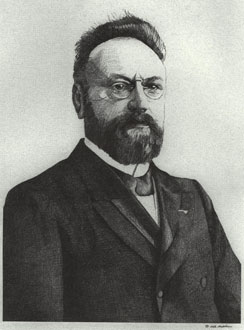The Synopsis of Polanus’ Syntagma (4)


As I’ve been working on this, I’ve also been reading volume 2 of Herman Bavinck’s Reformed Dogmatics. Bavinck interacts with many authors from before his time, include many Reformed scholastics. Judging from my reading so far and from the index, one of his favourites was Amandus Polanus, and the work invariably referenced is his Syntagma. Obviously, Bavinck thought Polanus was a worthwhile conversation partner, even if he didn’t always agree with him. Hopefully, some day we’ll see a complete translation of the entire work.
We’re continuing here with Book II, where Polanus deals with theology proper. In this section he deals with the will of God.
*******************
The very will of God is one; with regards to its gracious disposition towards us, it is firstly either essential or personal.
Second, the will of God is either effective or permissive.
Third, the will of God is either absolute or conditional. That one is said to be his good will, this one is a sign.
Fourth, the will of God is either revealed or hidden.
The revealed will of God is firstly either antecedent or consequent.
Second, the revealed will of God is either law or gospel.
Fifth, the will of God is either necessarily of nature or free.
Sixth, some things are the will of God toward us, which he wills to be done concerning us and other creatures; some things are what he wills to be done to us.
Seventh, with regards to the objects of his will, some are good and some are evil.
The good which God wills is both with regards to God himself, and then all natural, moral and heavenly good.
When it comes to evil, God’s will either executes punishment or assigns blame.
Outwardly, the will of God is then considered with regards to its goodness and then its justice.
The goodness of God is first considered either with regards to that good which is in him, or that which exists outside the author of all good.
Second, the goodness of God is the fount of the grace, love, compassion, patience and mercy of God.
The grace of God is considered either as residing in God, or in what God does.
The grace residing in God is consiered either as general or as special.
The love of God is said to be two-fold, either that by which God loves, or that by which we ourselves love God.
The first meaning is two-fold: either restrained (anergeethikos) or impassioned (patheetikos).
The restrained love of God is natural, and then voluntary.
The voluntary love of God is either general or special.
The special or singular love of God is then concerning Christ with respect to his human nature, and concerning the elect in Christ.
The compassion of God is said to exist in two modes: either active or passive.
When it comes to the objects, that compassion is considered either in a general way or in a special way.
The very justice of God is one. It is considered firstly either universally or particularly.
The particular justice of God is considered then with regards to itself, and then with regards to creatures.
This is further considered as either determinative (disponens) or distributive (distribuens).
The distributive justice of God is either of grace or of wrath.
The justice of divine wrath is either chastising or avenging.
The same is observed then with regards to the elect, and then with regards to the reprobate.
With regards to the elect, it is also observed in themselves, then in Christ for them.
With regards to the reprobate, it is observed both in reprobate people, and then also in the devil and his angels.
Second, the justice of God is considered both in truth and in sanctity.
God is truth, both in himself and outside of himself as he relates to creatures.
In himself, we consider his essence, then the archetype of all true things in his very existence, then his internal works.
Outside of himself, we consider the truth of God both in external works, and in his words.
That is all regarding the will of God.



I’m about 20% of the way through Bavinck’s first book, the Prolegomena, and agree that Bavinck is a good read.